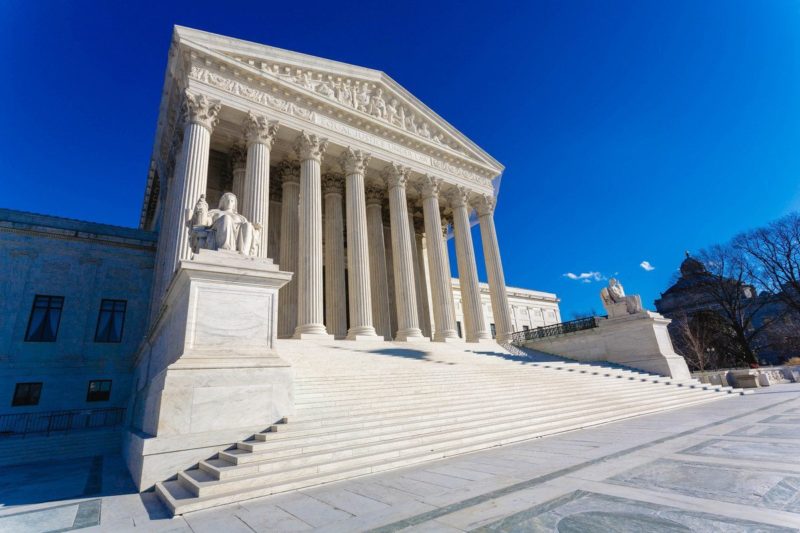Supreme Court Punts on Birth Control Benefit Challenges
The next question is whether, over the coming months, the federal appeals courts can once and for all put an end to this litigation by issuing consistent decisions, or whether it’s going to take a fifth justice on the Roberts Court to do so.

The U.S. Supreme Court on Monday sent back to the appellate courts a series of cases brought by religiously affiliated nonprofits against the birth control benefit in the Affordable Care Act (ACA).
The religious nonprofits argue that the opt-out process for complying with the ACA’s requirement that employer-provided health insurance plans cover contraception as preventive care violates the Religious Freedom Restoration Act (RFRA).
The decision issued in Zubik v. Burwell was per curium, which means it was a group decision “by the Court” rather than one in the name of a majority of justices. The decision avoids for now a direct ruling on whether the accommodation process violates the RFRA.
The Court had consolidated seven cases into a single oral argument, but on Monday released separate orders in each case instructing the appellate courts to reconsider them. That means there will likely be additional briefings and oral arguments, putting off final resolution of the issue until after the 2016 presidential election.
The Court instructed the lower courts to “to arrive at an approach going forward that accommodates petitioners’ religious exercise while at the same time ensuring that women covered by petitioners’ health plans ‘receive full and equal health coverage, including contraceptive coverage.'”
In short, the justices told the parties to, once again, try and work it out on their own.
The justices sent a clear instruction to the nonprofits challenging the accommodation process: While the litigation moves forward, the goal of the birth control benefit—to provide seamless contraceptive coverage—must remain in place.
“Nothing in this opinion, or in the opinions or orders of the courts below, is to affect the ability of the Government to ensure that women covered by petitioners’ health plans ‘obtain, without cost, the full range of FDA approved contraceptives,’” the Court wrote.
But just as the Court warned the nonprofits about trying to further interrupt contraceptive coverage for their employees and students, it warned the Obama administration not to move forward in enforcing penalties for those institutions that have objected to the accommodation process and to providing contraceptive coverage.
“Through this litigation, petitioners have made the Government aware of their view that they meet ‘the requirements for exemption from the contraceptive coverage requirement on religious grounds,’” the Court wrote. “Because the Government may rely on this notice, the Government may not impose taxes or penalties on petitioners for failure to provide the relevant notice.”
Justice Sonia Sotomayor, while agreeing in the outcome of the case, wrote a separate opinion, joined by Justice Ruth Bader Ginsburg. That opinion warns the lower courts and nonprofit challengers not to presume the Supreme Court would, in future arguments, accept the challengers’ argument that some other mechanism exists for accommodating the religious objections to providing contraception.
“Although the Court’s orders were not final rulings on the merits, they at the very least collectively constitute a signal that less restrictive means exist by which the government may further its interests,” Sotomayor wrote. “On remand in these cases, the Courts of Appeals should not make the same mistake.”
Furthermore, Sotomayor clarified, “The opinion does not, by contrast, endorse the petitioners’ position that the existing regulations substantially burden their religious exercise or that contraceptive coverage must be provided through a ‘separate policy, with a separate enrollment process.’”
“Such separate contraceptive-only policies do not currently exist, and the Government has laid out a number of legal and practical obstacles to their creation,” the Court wrote.
Monday’s decision resolved effectively nothing when it came to the battle over the ACA’s accommodation process. The next question is whether, over the coming months, the federal appeals courts can once and for all put an end to this litigation by issuing consistent decisions, or whether it’s going to take a fifth justice on the Roberts Court to do so.
